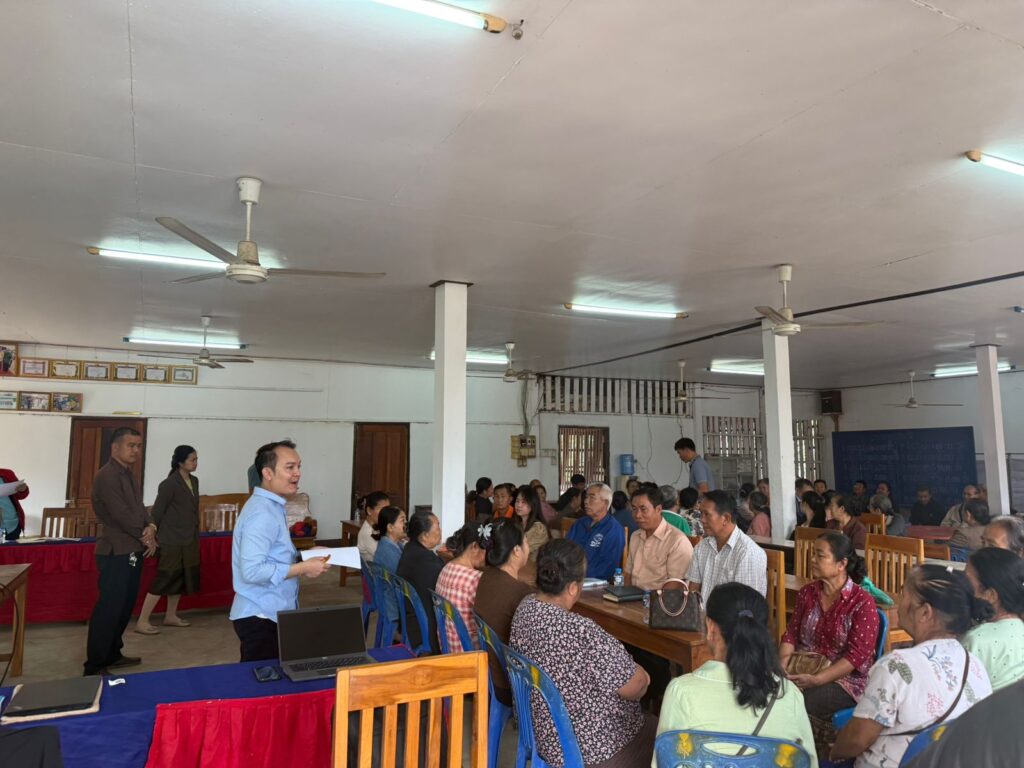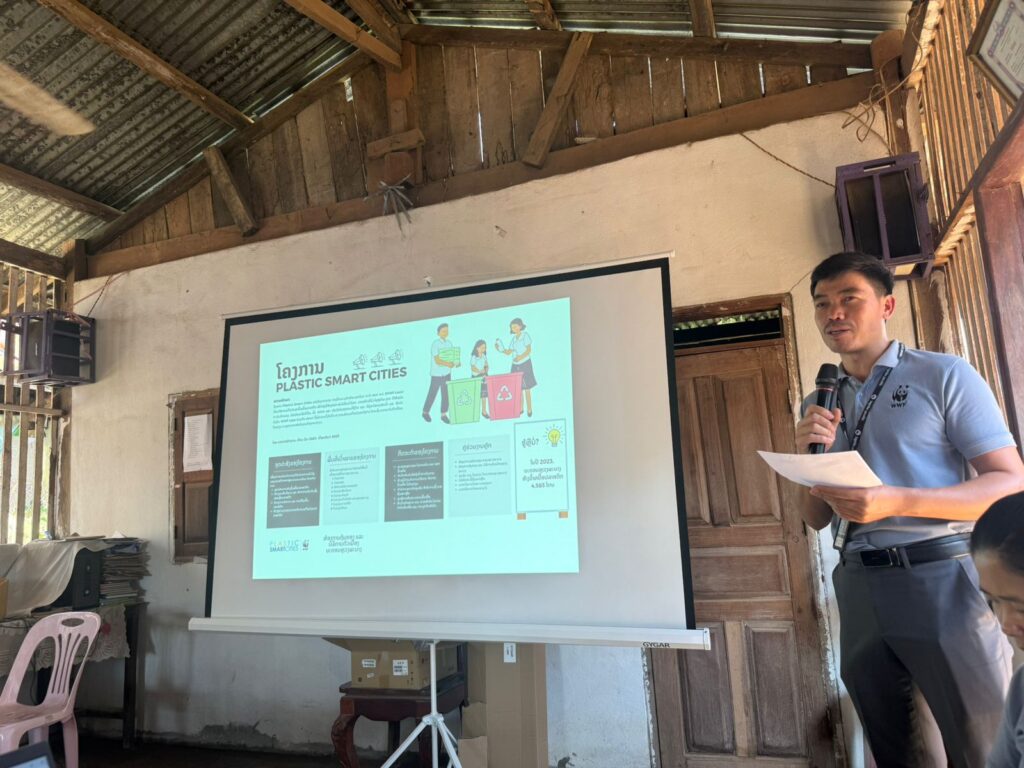On 3 December 2024, Luang Prabang, a UNESCO World Heritage City in Laos known for its rich cultural heritage and natural beauty, officially joined the Plastic Smart Cities (PSC) initiative in partnership with WWF-Laos.
A municipal waste profile study conducted in 2023 revealed that the city generates an estimated 4,583 tonnes of plastic waste annually. Inefficient waste collection systems have resulted in significant plastic leakage in water systems (~14%), with some found to be clogging the drainage systems (~27 tonnes), while open burning (~15%), is releasing harmful toxins into the atmosphere. Around 20% is estimated to end up in landfills.



Free Prior & Informed Consent (FPIC) process was held in 2 targeted communities
To tackle these challenges, the PSC initiative in Luang Prabang aims to reduce landfill waste and increase the recovery of recyclable materials by implementing waste segregation at source, starting with two villages. PSC will also collaborate with five schools to enhance waste management practices on campus and educate teachers and students on environmental sustainability, in particular on actions that can be taken to reduce plastic pollution.
“This partnership demonstrates Luang Prabang’s commitment to preserving its unique status as a World Heritage City, while taking significant steps toward becoming an environmentally sustainable city. WWF looks forward to working closely with public, private and community stakeholders in supporting Luang Prabang’s journey to becoming Plastic Smart – we believe the successes earned and lessons learned here will be valuable for other cities in Laos to scale solutions to plastic pollution,” said Phimnapha Syhabouth Government Policy and Engagement Manager of WWF-Laos.


